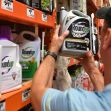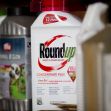German biotech and pharmaceutical company Bayer has agreed to pay $698 million to end a lawsuit the state brought forward in 2018. The original lawsuit filed in state court accuses agricultural giant Monsanto of allegedly polluting Oregon waterways and land areas through a class of toxic compounds, polychlorinated biphenyls, or PCBs. During the same time as the original lawsuit, Monsanto was acquired by its current parent company, Bayer.
PCBs, or “forever chemicals” as they have grown to be known, have been the topic of environmental concerns for the past couple of decades because of their harmful impacts on the environment. Once these toxic compounds are created, it is very difficult for them to be removed from the environment, hence their nickname. According to the state of Oregon, these harmful chemicals have infiltrated nearly every part of the state's environment, causing irreparable harm to land areas, wildlife, and humans.
According to the Environmental Protection Agency, PCBs are known for their negative environmental impacts, including their proven history of causing cancer in animals, impacting the immune, reproductive, and nervous systems of animals, and being a potential carcinogen for humans.
Since filing the original lawsuit, Oregon’s state officials have also been on a mission to raise awareness about these chemicals’ harmful effects.
“Polychlorinated biphenyls have caused and continue to cause a devastating impact on Oregon’s natural environment,” State Attorney General Ellen Rosenblum shared during a news conference in Portland. “They threaten the health of the people that use and enjoy our state’s natural resources — our air, our water, our ground, our fish, practically everything in our habitat.”
Although the original lawsuit was filed against Monsanto, the agricultural giant best known for its controversial weed killer Roundup, in the same year, Bayer acquired Monsanto for over $60 billion. Even beyond the acquisition, Oregon details in the lawsuit that between the 1930s to 1979, Monsanto was the only manufacturer of these toxic PCBs. These synthetic chemicals which do not naturally break down were used in a variety of products including paints, caulks, industrial electrical equipment lubricants, and much more. Despite knowing that they were harmful as early as 1979, the company continued to manufacture PCBs and sell products with the harmful toxin.
The nearly $700 million settlement will be the largest payout by Monsanto in relation to the allegations of its part in contaminating the environment with PCB toxins. Despite being the largest, it is not the only settlement or legal action the company has faced over the decade. Washington state was the first to sue Monsanto in 2016 over its role in causing harmful PCB contamination. States including New Mexico, New Hampshire, Ohio, and the District of Columbia have also taken legal action against the company. A number of other cities have also sued the agricultural giant.
In the suit filed by Oregon, the state alleges that over two dozen rivers and streams tested positive for contamination by the toxic compound. Because of this, fish and wildlife have also exhibited signs of PCB contamination. One of the state's most impacted areas has been Portland Harbor. The increased contamination here is believed to be from decades of harbor businesses using PCBs for metal recycling, manufacturing, fuel storage, and other industrial uses. Over the decades, the leached and improperly disposed of products containing PCBs clung to the harbor, continuing to contaminate a variety of fish and wildlife species including the region’s orca whale species.
After announcing the settlement, the state shared that the recovered funds will be used for cleanup efforts throughout Oregon. The Oregon Department of Justice shared that it will work alongside the governor, the legislature, and state agencies to determine how funds will be allocated for cleanup efforts.
As part of the settlement, Bayer has not admitted to any wrongdoing or liability on behalf of themselves or Monsanto.






